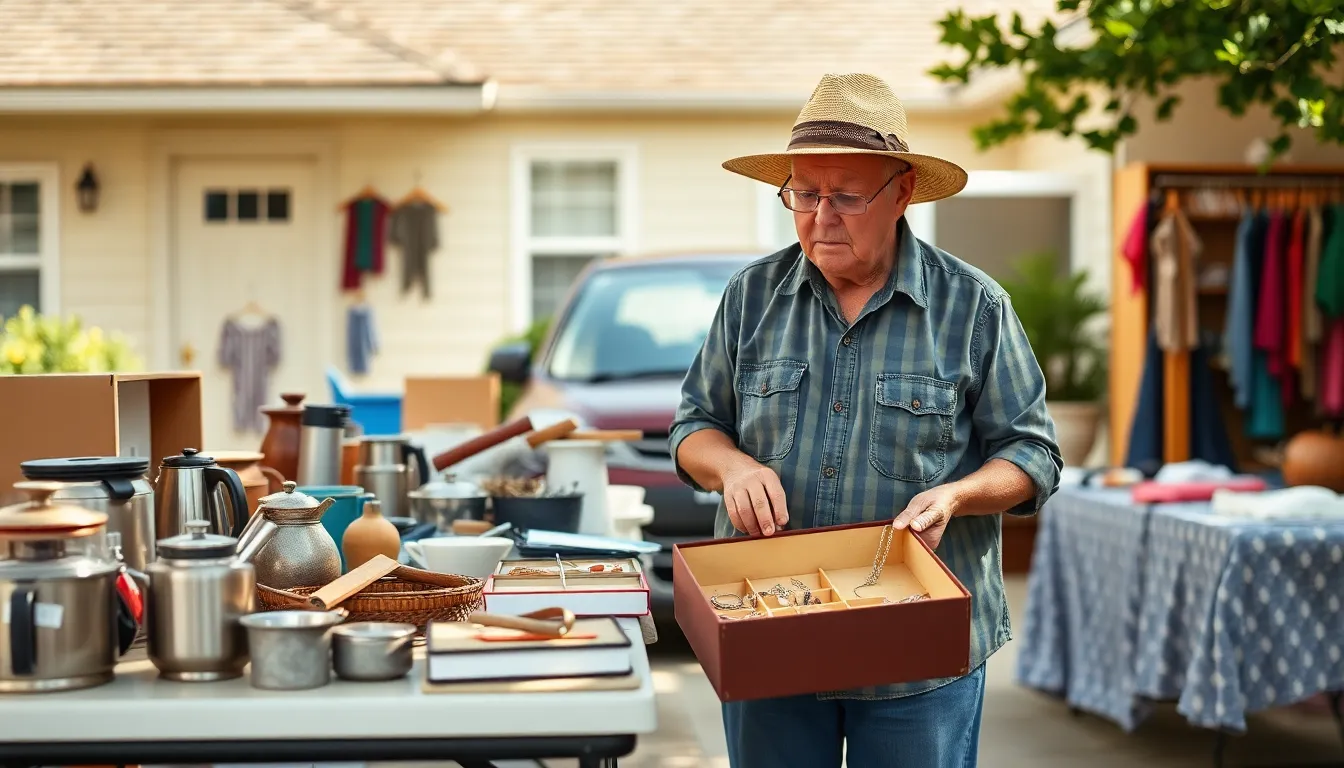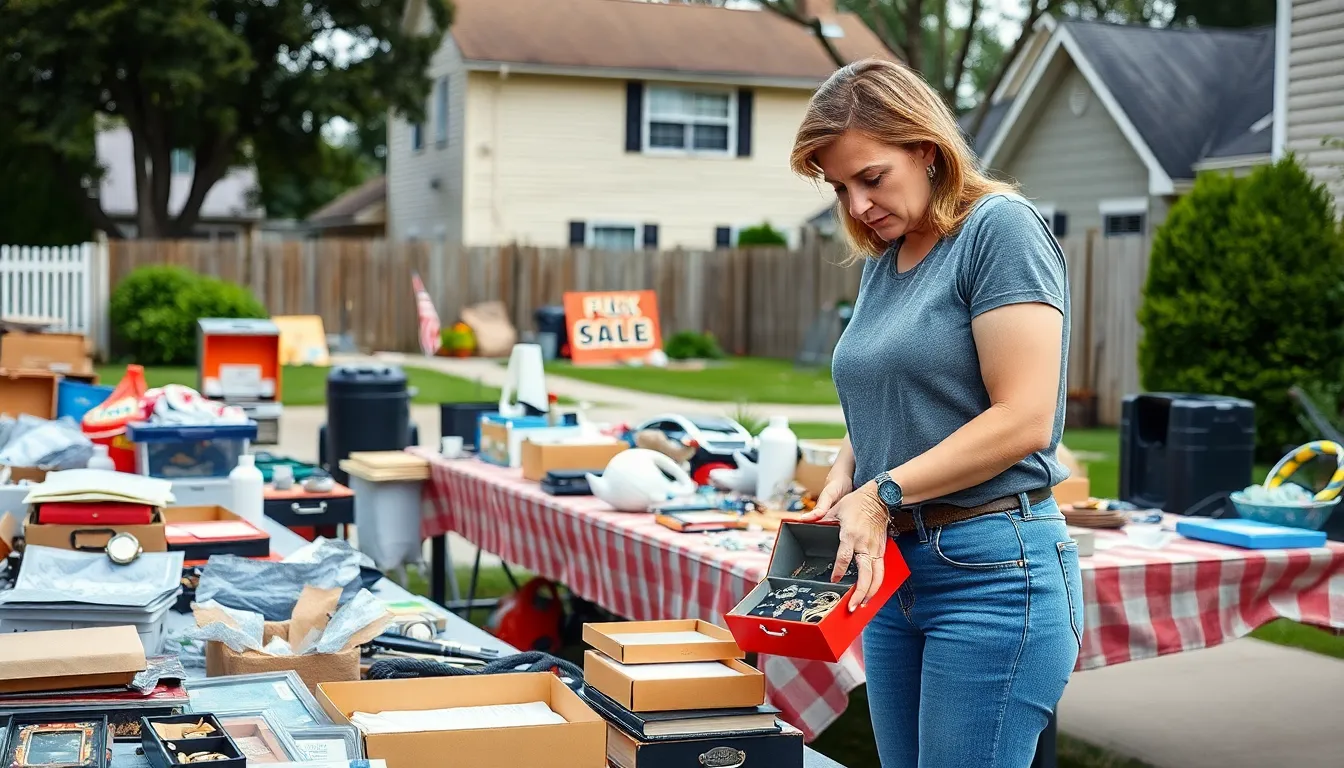Garage sales can be a treasure trove for bargain hunters, but not everything belongs on display. Knowing what not to sell is just as crucial as deciding what to showcase. Some items might not only fail to attract buyers but could also lead to unwanted complications or safety concerns.
From personal belongings to outdated electronics, certain items can diminish the appeal of a garage sale. It’s essential to consider both the practicality and legality of what you’re offering. By steering clear of specific categories, sellers can create a more successful and enjoyable experience for everyone involved.
Table of Contents
ToggleCommon Items That Don’t Sell
Certain items consistently fail to attract buyers at garage sales. Recognizing these categories can help sellers avoid disappointment.
Expired Food Products
Expired food products pose safety risks and legal issues. They may include canned goods, packaged snacks, or any items past their expiration dates. Most buyers won’t consider purchasing food with questionable safety, leading to unsold items. It’s best to discard expired food rather than attempt to sell it.
Outdated Electronics
Outdated electronics often fail to attract interest due to rapid advancements in technology. This category includes old televisions, non-functioning cell phones, and obsolete gaming consoles. Buyers typically seek modern, functional devices that meet current standards. Therefore, sellers struggle to move these items, resulting in unnecessary clutter.
High-Value Items to Avoid


Selling high-value items at a garage sale often leads to complications and unsatisfactory outcomes. Certain categories consistently generate more risk than reward.
Expensive Jewelry
Expensive jewelry, including valuable pieces made of gold or featuring precious stones, should remain off the sales list. High-value jewelry attracts theft, invoking security concerns. Additionally, buyers may question authenticity, which can lead to trust issues and disputes. The selling process requires proper appraisal and transparency, making traditional avenues like jewelry stores or online marketplaces more suitable.
Valuable Antiques
Valuable antiques often require specialized knowledge for accurate valuation and selling. Items such as rare collectibles or heirlooms possess significant sentimental value, complicating their sale. Understanding market demand is essential; niche collectors often seek more formal venues or auctions for authentic transactions. Attempting to sell these items at a garage sale risks undervaluation and potential losses, diminishing their true worth.
Unwanted Clothing and Accessories
Certain clothing and accessory items often fail to attract buyers at garage sales. Sellers should carefully consider the types of apparel they offer, as some items may not generate interest.
Worn-Out Shoes
Worn-out shoes typically lack appeal at garage sales. Shoes with visible wear, such as frayed laces, scuffed surfaces, or damaged soles deter potential buyers. Most buyers seek functional, comfortable footwear, often avoiding second-hand items unless they appear almost new. Without quality and condition, worn-out shoes rarely find a new owner.
Outdated Fashion
Outdated fashion items struggle to capture interest at garage sales. Styles from several years ago often fail to resonate with current trends. Items such as dated patterns, styles, or poorly fitting clothing typically receive little attention. Sellers should focus on modern clothing that aligns with popular styles, ensuring a better chance of sale.
Items with Legal or Safety Concerns
Sellers should avoid items that pose legal or safety concerns to improve the garage sale experience. Certain product categories present risks that deter buyers and create potential liabilities.
Hazardous Materials
Hazardous materials, including chemicals, paints, and solvents, should never be sold at garage sales. These items can contain toxic substances that pose significant health risks if mishandled. Local laws often prohibit the sale of such items without proper certification, and selling them can lead to legal consequences. Moreover, improper disposal of hazardous materials can harm the environment and public health. It’s best to discard these items according to local regulations or take them to designated waste disposal facilities.
Used Appliances
Used appliances warrant caution due to potential safety hazards. Faulty or outdated appliances, like toasters, microwaves, or space heaters, can malfunction and cause injuries or fires. Many buyers prefer new, energy-efficient appliances for safety and reliability concerns. Furthermore, selling appliances may require adherence to regulatory standards, including inspections or warranties. Sellers should consider donating these items to reputable charities or seeking professional evaluation before proceeding with a sale.




